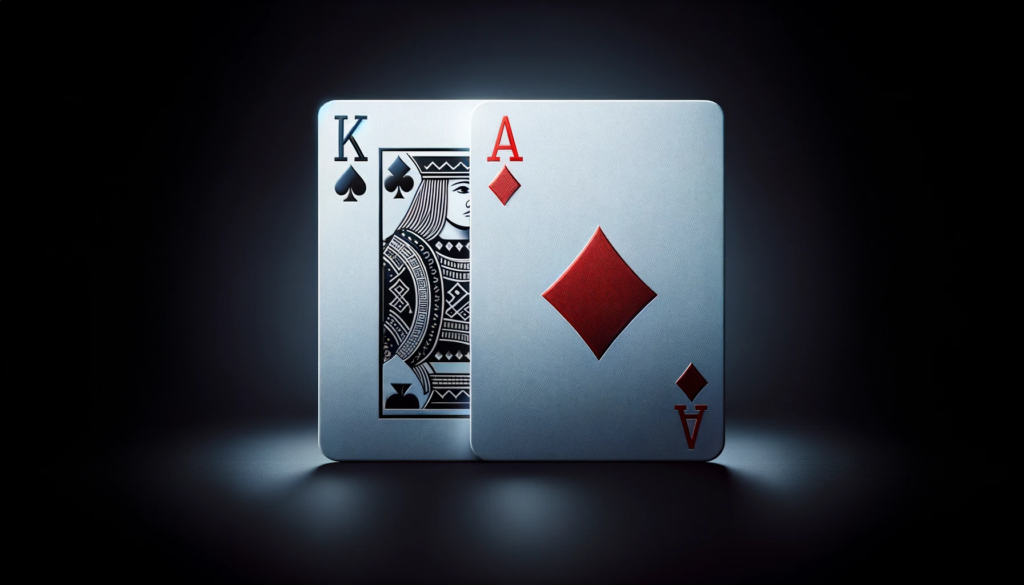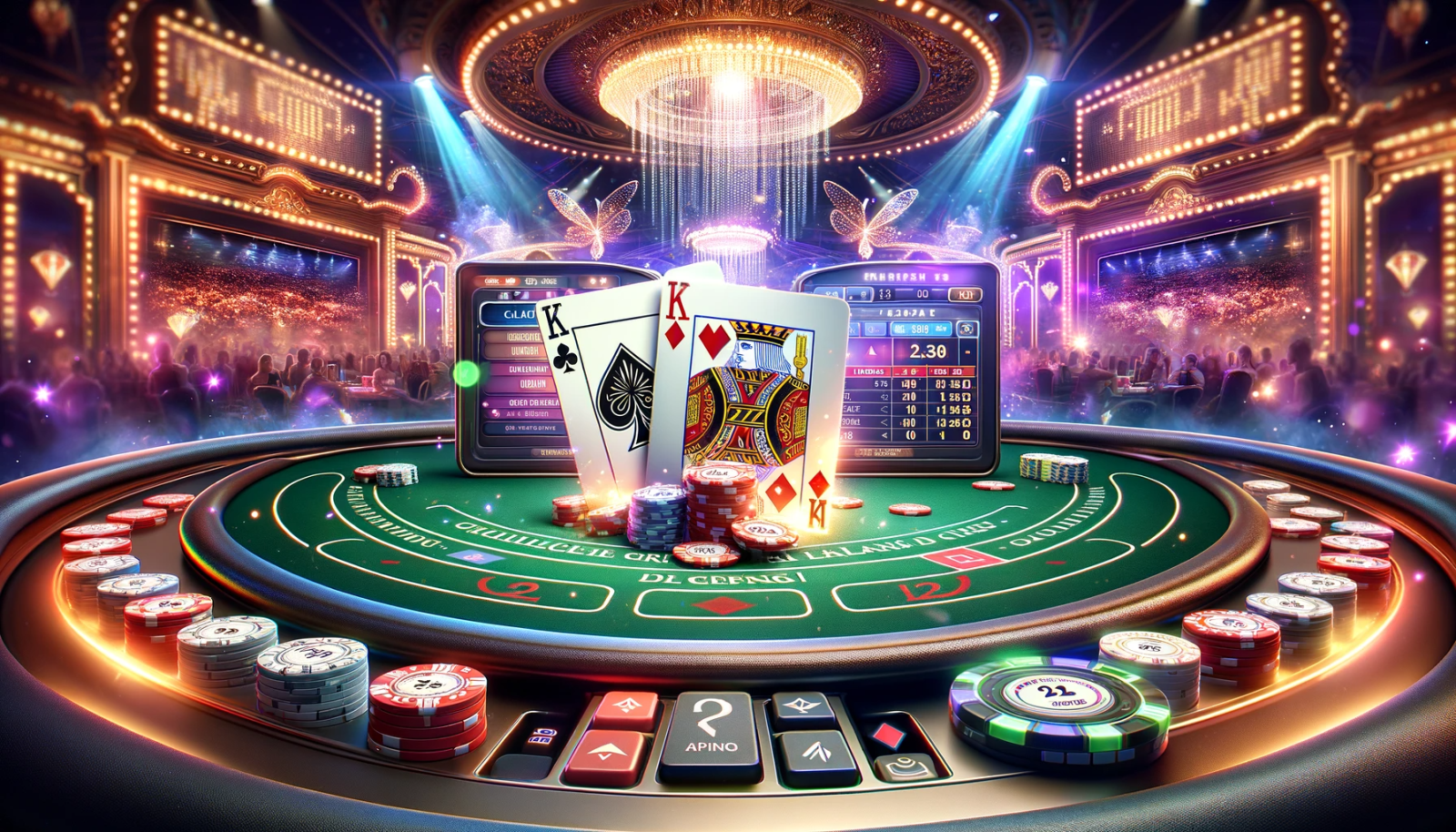The Comprehensive Guide to Blackjack
Blackjack, also known as 21, is a popular card game found in casinos worldwide. Its blend of skill, strategy, and luck attracts players of all levels. This guide delves into the essentials of blackjack, offering a thorough understanding of the game.
1. Objective of the Game
The primary goal in blackjack is to beat the dealer. This can be achieved in three ways:
- Getting 21 points on the player’s first two cards (called a blackjack), without a dealer blackjack.
- Reaching a final score higher than the dealer without exceeding 21.
- Letting the dealer draw additional cards until their hand exceeds 21 (busts).
2. Card Values
Understanding card values is crucial:
- Number cards (2-10) are worth their face value.
- Face cards (Jack, Queen, King) are each worth 10.
- Aces can be worth 1 or 11, depending on which value benefits the player’s hand more.
3. Gameplay Mechanics
A standard round of blackjack unfolds as follows:
- Betting: Players place their bets.
- Dealing Cards: Each player, including the dealer, receives two cards. In most casinos, players’ cards are dealt face up; one of the dealer’s cards is face down (the hole card).
- Player Decisions: Players decide how to play their hands. Options include:
- Hit: Take another card.
- Stand: Keep the current hand.
- Double Down: Double the bet, take one more card, and then stand.
- Split: If the first two cards are of the same value, split them into two separate hands.
- Surrender: Forfeit half the bet and end the round (not always available).
- Dealer Play: After all players are done, the dealer reveals the hole card and plays according to preset rules (usually hitting until their hand is 17 or higher).
- Payouts: Winning hands are paid out.
4. Blackjack Strategy
Basic strategy in blackjack involves making the optimal decision based on the player’s hand and the dealer’s visible card. It minimizes the house edge and increases the player’s chances of winning. The strategy is usually presented in a chart and varies slightly depending on the game’s specific rules.
5. Variations of the Game
Blackjack casino games has several variations, each with unique rules:
- European Blackjack: The dealer doesn’t receive the hole card until after the players have made their decisions.
- Atlantic City Blackjack: Allows late surrender and the dealer must stand on both soft and hard 17.
- Spanish 21: All 10s are removed from the deck, and there are special payouts for specific hands.
6. House Edge and Odds
The concept of the house edge is integral to understanding casino games, and blackjack is no exception. In blackjack, the house edge represents the average gross profit the casino expects to make from each game. The beauty of blackjack lies in its relatively low house edge, which, with the application of basic strategy, typically falls below 1%. This is significantly lower compared to other casino games.
- Impact of Game Rules on House Edge: Different blackjack variants have specific rules that can affect the house edge. For instance, the number of decks used in the game is a critical factor. Single-deck games usually offer a lower house edge, but casinos often counterbalance this with other rules that favor them.
- Probability and Odds: Understanding the likelihood of different outcomes in blackjack is crucial. For example, the probability of hitting a natural blackjack (Ace and a 10-point card) is about 4.8%, which influences payout ratios.
- Basic Strategy Effectiveness: Basic strategy charts provide the optimal decision for every hand combination. This strategy reduces the house edge to its theoretical minimum, offering a mathematically sound approach to each game.
7. Card Counting
Card counting in blackjack is a method used to determine the likelihood of drawing high-value cards versus low-value cards. This strategy gives the player an advantage over the casino.
- Techniques: There are various card counting systems, ranging from simple to complex. The Hi-Lo system is one of the most popular, where cards are assigned a value of -1, 0, or +1. The total count adjusts with each card played and indicates the proportion of high cards left in the deck.
- Legal Aspect and Casino Policies: While card counting is not illegal, casinos reserve the right to refuse service to anyone. Players identified as card counters may be asked to leave or barred from playing blackjack.
- Practical Challenges: Successful card counting requires practice, concentration, and often, the ability to act inconspicuously. It’s more challenging to execute in modern casinos due to measures like frequent shuffling and the use of multiple decks.
8. Bankroll Management
Effective bankroll management is a crucial skill for any gambler, especially in a game like blackjack.
- Setting Limits: Establishing clear boundaries on how much you’re willing to bet and lose is essential. This prevents the common pitfall of chasing losses, which can lead to financial strain.
- Betting Strategies: Various betting strategies exist, such as the Martingale system, but they all come with inherent risks. The key is to choose a strategy that aligns with your bankroll and risk tolerance.
- Psychological Aspect: Good bankroll management also involves emotional regulation, ensuring that decisions are based on logic rather than emotion.
9. Casino Etiquette
Casino etiquette in blackjack ensures a respectful and enjoyable environment for all players.
- Handling of Cards and Chips: In games where the cards are dealt face up, only touch the chips and not the cards. In face-down games, cards are handled with one hand.
- Communication with Dealer: Use hand signals to indicate your playing decisions. This helps avoid misunderstandings and is also important for the surveillance cameras.
- Tipping: While not mandatory, it is customary to tip the dealer, especially after a big win or at the end of a session.
10. Online Blackjack
Online blackjack has surged in popularity, offering distinct advantages over traditional play.
- Variety of Games: Online platforms often feature a wider range of blackjack variants than physical casinos.
- Convenience and Accessibility: Players can access games from anywhere without the need to travel to a casino.
- Lower Stakes and Bonuses: Online casinos often have lower minimum bets and offer various bonuses and promotions.
- Live Dealer Games: Many online casinos offer live dealer blackjack, combining the convenience of online play with the experience of a live game.

Conclusion
In summary, mastering these aspects of blackjack gambling – understanding the house edge and odds, employing strategies like card counting, managing your bankroll effectively, adhering to casino etiquette, and exploring the online blackjack arena – can significantly enhance your gaming experience and success in the game.
Blackjack is a game of skill, strategy, and a bit of luck. Understanding its rules, strategies, and variations can significantly enhance your playing experience and increase your chances of success. Remember, responsible gambling is key to enjoying blackjack and other casino games.
